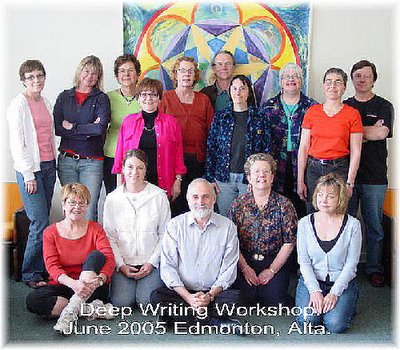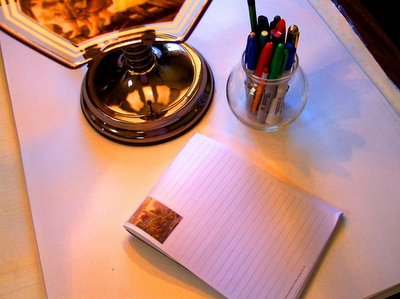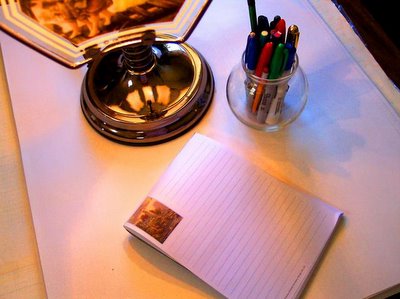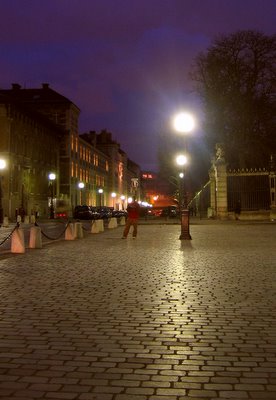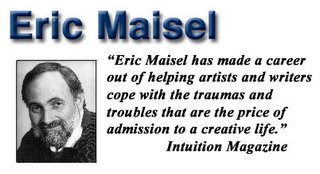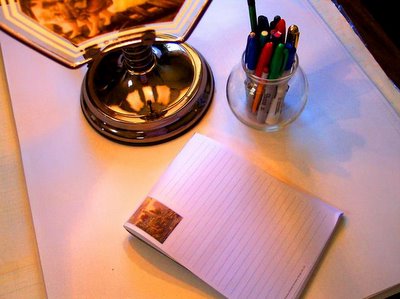
The first day of March dawned frigid. It had dropped below freezing overnight and water pipes froze, jade plants died, and windshields frosted over. It was still freezing when Phoebe awoke. Tucked under several layers of blankets, with only her nose exposed to the chill air, she felt a squirming and wiggling at her feet that was impossible to ignore. She peeked out from under the blankets and pulled the covers up to expose her brightly stockinged feet. She also exposed five muses, huddled together for warmth at the foot of her bed.
"Sorry!" Phoebe exclaimed. "But what are you DOING there?"
"You were working very hard on your English paper last night," Harold Spider replied. "We were keeping you company and it got too late. We missed the last bus home."
"That is the most--" Then she remembered something.
She shot out of bed.
Today was Awards Day. It had become a tradition at Lincoln to give out awards on March 1st, rather than nearer graduation, so that eighth graders could enjoy their awards--preen, you might say, and puff out their chests--for some months before school ended. This arrangement always caused grumbling and patent inequities, as a student would win the Math Award, say, and then do poorly on the final, or, conversely, some up-and-coming Spanish whiz would end up with the highest grade but miss out on his or her honor because the award had already been given out. Phoebe wasn't sure what she thought about Lincoln's early awards' policy, but today was that day and that meant that by the end of today she would be a winner or a loser.
She wanted the English award. In her own mind she added the word "desperately." She liked the way she wrote. She admired the way she wrote. Possibly somebody else deserved the English award as well--though she couldn't imagine who, and certainly not Jennifer Tang, whom everybody praised but whose prose was so FLAT!--but she deserved it the most, so if she didn't get it that would be wrong. Not malicious, necessarily, but absolutely wrong. Yes, she had hurt herself many times over, by writing her mind; and yes, in the real world you were likely to be punished for transgressions of truthfulness. But still this was school, after all, a place meant to be more ideal than real, and in an ideal place you should be rewarded for speaking your mind.
She was thinking about these things as she hurried to get dressed. She was also preparing her acceptance speech. Usually the award winners didn’t speak; but Phoebe certainly wasn’t going to miss her chance. She never understood how a nominee at an awards ceremony could, upon winning, come up and have nothing to say. What WERE they thinking? It certainly would not be enough to thank her parents, the teachers at Lincoln for choosing her, and so forth. She wanted something on the order of the Russian novelist Solzhenitsyn's Nobel Prize Speech, which she had recently read on account of some muse's allusion to it. In it, Solzhenitsyn talked eloquently about truth, beauty, goodness and the power of art to make a difference. She needed a speech like that and she would have to compose it on the way to school, as the Awards Assembly would begin right after the first bell.
She hurried her breakfast and rushed off to school. Turning the first corner, she blinked. There were no young children waiting for the school bus. Where were they? The day was already very odd! First the freeze. Then the muses in her bed. Then the specter of awards. Now the missing elementary school kids. Always, as she passed Mrs. Pete's Coffee Shop and Candle Works, there would be twenty or thirty elementary school kids and their mothers waiting for the school bus. Today there were none. Phoebe knew that she was neither late nor early, so that could mean only one thing: the elementary school must be on holiday.
Phoebe shook her head and hurried on.
She was rushing down Pecan when she heard the most awful racket. It was so amazing a racket that she stopped and stared at the culprit house. The closest she could come to an explanation was that someone was banging on pots and pans with a ladle in each hand. In fact, that seemed to be exactly what she was hearing: wild drumming of the kitchen variety. She was about to walk on when she saw a police cruiser pull up. The policemen who emerged from the cruiser seemed alarmingly grumpy. The taller of the two officers knocked loudly on the front door. The drumming stopped immediately. A boy of about nine came to the window, pulled aside the curtain, and peered out. When he saw the policemen, he let go of the curtain and opened the front door.
"Where's your mother?" the officer said unpleasantly.
"At work."
"Is there an adult here?"
"No."
"We're going to need to come in."
"Sure," the boy said. "You can leave the door open. The rest of the band will be here soon."
"The rest of the what?"
"We're having band practice. School's off. I'm the drummer."
"Your neighbors complained--"
"Certainly a boy can drum during daylight hours," Phoebe said, coming forward. "I mean, if people can saw and mow and demolish houses, certainly a boy can drum!"
"It's a safety issue," the tall officer said. "Home alone without supervision--"
"He looks safe," Phoebe said. "Are you sure it isn't a noise issue?"
"You move on!" the officer said.
Phoebe could tell that he wasn't kidding. But she wouldn't budge. Without hesitation she stepped directly into the living room. She thought about exclaiming "I am a member of Amnesty International!" but she had the feeling that would only escalate matters. So she kept quiet while the officers conferred.
Phoebe looked around. There were pots of every description turned upside down on the rug and arranged like a drum set. Nothing could be clearer. Of course the boy had been drumming. Just as Phoebe was saying to herself, "He should be allowed to drum!" another third-grader appeared, a girl in dress carrying a guitar case. Behind her traipsed in a very untidy boy with a bass. Then came a second girl with a flute case. Last to arrive was a boy with a clarinet case.
"We're here!" the girl in the dress said. "My mom dropped us off."
"We're called Little But Wild," the drummer told the policemen. The other band members removed the instruments from their cases. "We're ready for paying gigs but if you come to the spring concert you can catch us for free!"
"Give me your mother's phone number at work," the tall officer said. "Right now!"
At that moment a new boy entered the house. He looked sly and worldly for a third grader. "Their manager," Phoebe said to herself. "Or maybe the singer."
An additional police car arrived. Two more policemen entered the living room. Phoebe heard the four of them saying things like "neglect" and "child abandonment" and "social services." She grew livid. How dare they demonize the parents of this boy because their son had a day off from school and devised a band practice! She was about to say something when suddenly the band began playing.
They were horrible. Really and truly awful. Their rendition of what appeared to be "Satisfaction" was so dreadful that you couldn't truthfully say that it WAS "Satisfaction," despite the presence of those famous first eight notes. Phoebe wished she didn't have to listen. She was already late. But it was much more important to guard the rights of these citizen artists, even if they were only nine years old and sounded awful, than to worry about missing her just-and-due reward at the awards' assembly.
"Look," Phoebe said to the still-conferring policemen. "I'll babysit them. If that makes a difference."
"You're truant!" the tall officer replied. "Keep your nose out of this!"
"I have never been truant in my life!" Phoebe retorted. "I'm just guarding the rights of these young musicians, that's all! What if these were Beethoven, Chopin, and, I don't know, Clara Schumann and Sophie Mendelssohn? Wouldn't--"
"For one thing," the tall officer interrupted, "they would sound a lot better."
At Lincoln Middle School, right at that moment, Mr. Wasco, the principal, was announcing the eighth grade awards. The gym was completely packed, even with parents, who strictly speaking hadn't been invited, as there was an awards evening for them to attend. Some had come anyway just in case their child won something.
"The Eighth Grade English Award goes to ... Phoebe Barlow," Mr.
Wasco said.
Of course there was no Phoebe to be found. There was the usual mini-pandemonium as it became clear that Phoebe would not be coming forward to accept her award. Mr. Wasco made a lame joke and handed the plaque to Mrs. Hopkins, Adrienne's mom, who today was serving as awards' custodian.
"The Eighth Grade French Award goes to ... Phoebe Barlow."
The teachers on the dais looked consternated. Their was laughter among the students, who sensed that the administration was feeling foolish; and muttering among the parents, who were witnessing their son or daughter lose to someone who didn't even care enough to attend the ceremony.
"The Eighth Grade History Award goes to ... Phoebe Barlow."
Great applause from the students.
"The Eighth Grade Art Award goes to ... Phoebe Barlow."
Full pandemonium. Foot-stomping and cat-whistling.
"The Eighth Grade Math Award goes to ... Jennifer Tang!"
A mixture of boos and cheers. The teachers on the dais breathed a sign of relief. Jennifer Tang, elegant in a black dress, came forward and accepted her award.
"The Eighth Grade Science Award goes to ... Bellamy Bloom!"
Hoots. Cries of "Popcorn Boy!" and "Belly-me!" Bellamy came forward, holding onto his pants to prevent them from falling down.
"And our highest honor, the Eighth Grade Academic Achievement Award goes to ... Phoebe Barlow."
This brought down the house.
At Pecan, the drummer's mother arrived, having been summoned from work. She got a tongue-lashing about parental responsibility, apologized without meaning it, yelled at the children to be quiet--as they were continuing their band practice--glanced at Phoebe without the slightest idea of what to make of her, and finally managed to mollify the policemen, who with some last reproaches backed out of the living room.
Phoebe proceeded on to school, late but happy. The awards ceremony had completely slipped from her mind. She was thinking about honor, duty, and the hundred pounds the British Philharmonic Orchestra sent to Beethoven on his death bed, claimed by one pundit to be the only wholly creditable act in the history of the British Empire. She had done, in her estimation, a wholly creditable act of her own. Even if the band she'd defended was wholly horrible-sounding!
Read more!





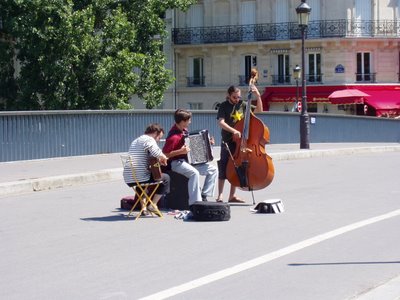



 Read more!
Read more!




